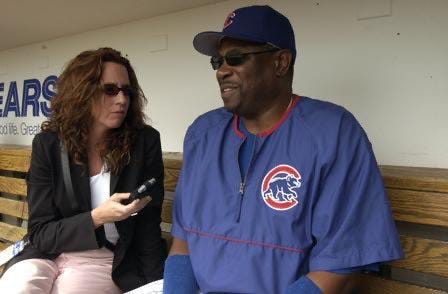From the Archives | Dusty Baker: The God Factor Interview
In this revelatory interview with Baker, then-manager of the Chicago Cubs, now on his way to the World Series with the Houston Astros, the baseball legend discusses the faith that centers him.

From The God Factor: Inside the Spiritual Lives of Public People,
by Cathleen Falsani (Farrar, Straus & Giroux, 2006)
DUSTY BAKER
Professional Baseball Manager
You can be a Christian and be hard-nosed.
A.K.A.: J…


